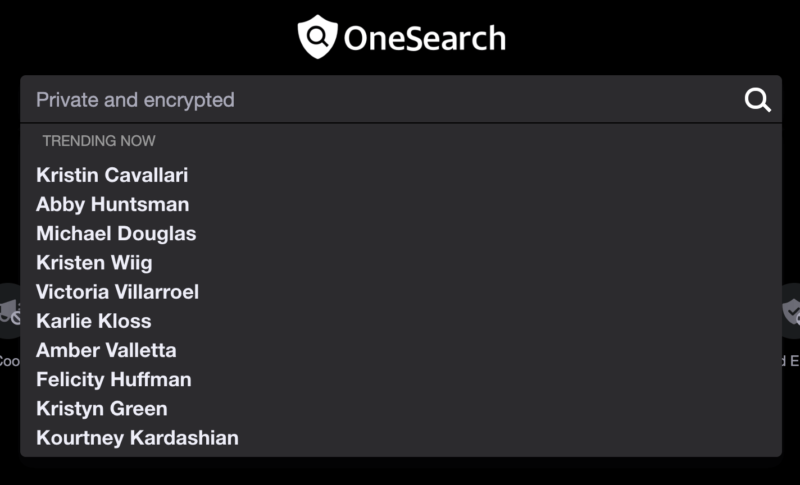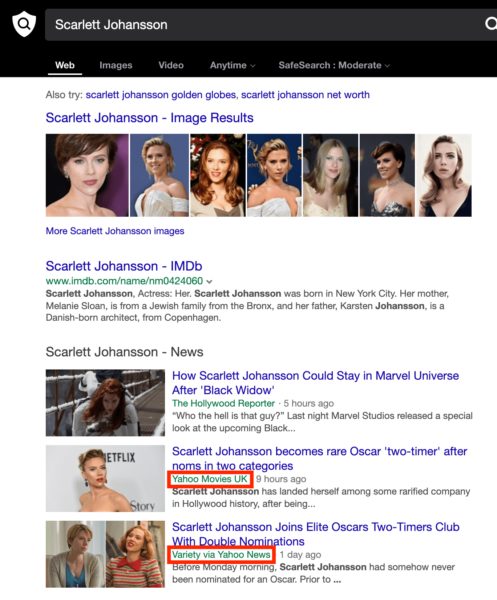OneSearch, Verizon Media’s new search engine, sounds awfully familiar
The privacy-focused search engine serves contextual ads and doesn’t use cookies for tracking.
Verizon Media has launched OneSearch, which appears to be a direct DuckDuckGo competitor, capitalizing on heightened awareness around privacy and tracking issues. The new search engine will serve results powered by Bing and run contextual ads rather than behaviorally targeted ads that rely on cookies.
Microsoft and Verizon Media. OneSearch’s organic search results are provided by Microsoft’s Bing search engine and its contextual ads will be served by Microsoft Advertising (formerly Bing Ads) under the Verizon Media and Microsoft Advertising partnership. However, at the time of publishing, ads do not appear to be showing on search results pages.
Privacy features. OneSearch does not employ cookies to track online behavior for targeting or retargeting users with ads.
The search engine encrypts search terms entered by the user and builds the search URL using those encrypted search terms. The encryption key expires after one hour, which may stop third parties from accessing search history via browser history after the one-hour period.
“Advanced Privacy Mode,” which is enabled by default, must be turned on to encrypt search terms and expire search history links.
Trending Now. When a user clicks on the search box, a list of “Trending Now” searches appears (before the user begins inputting their search terms).

“Trending Now uses search logs to determine if there are entities (people, places or things) for which searches have been peaking recently,” a Verizon Media spokesperson told Search Engine Land. “We compare the number of searches for that entity within a short, recent, period of time with the average baseline for that entity over an extended period of time. A pool of those that are showing the most dramatic uplift are selected, and we rotate through that pool.”
Why we care. OneSearch offers another search option for privacy-oriented users. DuckDuckGo, which also serves contextual search ads that do not rely on cookies, has gained in popularity over the years and will appear on Google’s search choice screen for Android users in the EU, which may increase its share of the mobile search market. OneSearch will have to differentiate itself if it seeks to overtake similar competitors such as DuckDuckGo, let alone more well-known search engines.
The way that OneSearch leverages trending searches also lends itself to the content that other Verizon-owned companies, such as Yahoo, produce.

“We crawl the web for content, which includes Verizon Media websites, and pull the most recent, relevant content from that pool,” a Verizon Media spokesperson told Search Engine Land. “If you tend to see Yahoo content, that just means Yahoo has a good depth of recent, relevant articles that pertain to the content.”
Contributing authors are invited to create content for Search Engine Land and are chosen for their expertise and contribution to the search community. Our contributors work under the oversight of the editorial staff and contributions are checked for quality and relevance to our readers. The opinions they express are their own.
Related stories
New on Search Engine Land